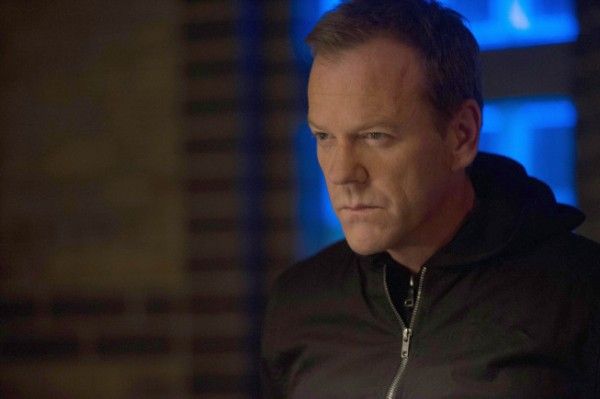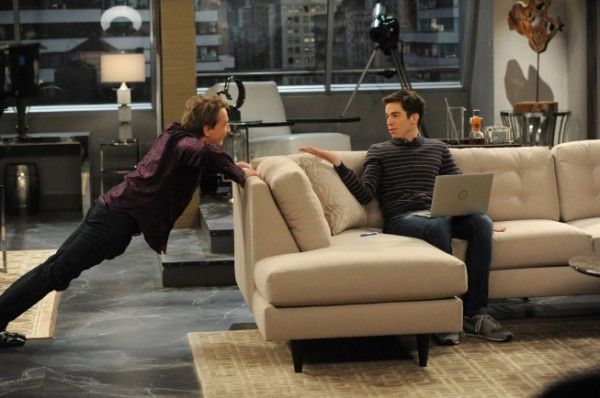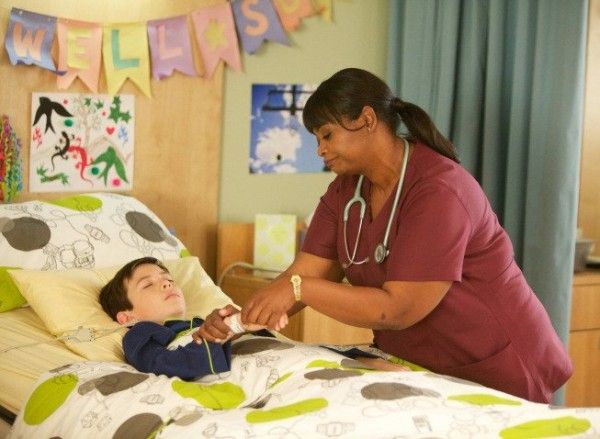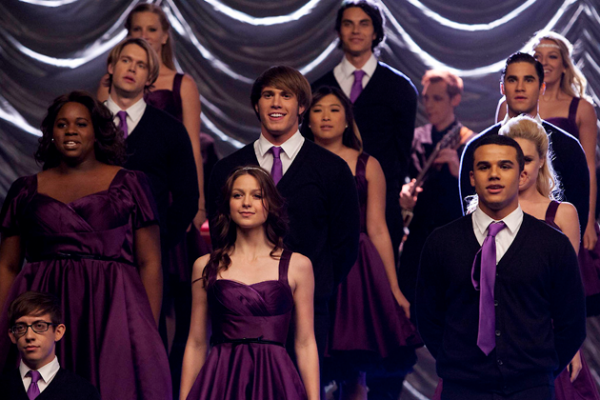While at the Fox portion of the TCA Press Tour, Fox Networks Group Chairman and CEO Peter Rice took some time to talk about new and returning programming. During the interview, he spoke about the chances of 24 returning for another season, whether the upcoming Season 10 could be the last season for Bones, why they decided to go ahead with Mulaney, even though it wasn’t ready, the status of Tina Fey’s Cabot College, why they were drawn to Red Band Society, what happened with Hieroglyph, and why they chose to cut the episode number for Glee. Check out what he had to say after the jump. Question: How likely is it that 24 will return?PETER RICE: I loved this year’s season of 24. I thought it was fantastic. I’ve always been a fan, and it just twisted and turned, and I could never guess where it was going. We haven’t had a specific conversation about it coming back yet. I’m sure that we will, in the future. It’s a wonderful franchise. Kiefer [Sutherland], Evan [Katz], Howard [Gordon] and Manny [Coto] did a great job this year. So, when you look at the show itself, it has many more stories to tell, but I think we have to sit down and talk to the creators about it.  Is this the last season of Bones, or is that open-ended?RICE: I hope that this year is not the last year. It’s a fantastic series. It has famously moved all over our schedule, and done that for 10 years. It’s Emily Deschanel and David Boreanaz’s last year, contractually. So, we’ll have to have that conversation with them, as well, but I’d hope that that would come back. With Mulaney, a lot of networks would have simply said, “This is not ready yet. We’ll wait. We’ll finish another pilot, and then put it on the air.â€Â Why did you feel that you had to take it, when it wasn’t quite ready yet, and put it on the schedule?
Question: How likely is it that 24 will return?PETER RICE: I loved this year’s season of 24. I thought it was fantastic. I’ve always been a fan, and it just twisted and turned, and I could never guess where it was going. We haven’t had a specific conversation about it coming back yet. I’m sure that we will, in the future. It’s a wonderful franchise. Kiefer [Sutherland], Evan [Katz], Howard [Gordon] and Manny [Coto] did a great job this year. So, when you look at the show itself, it has many more stories to tell, but I think we have to sit down and talk to the creators about it.  Is this the last season of Bones, or is that open-ended?RICE: I hope that this year is not the last year. It’s a fantastic series. It has famously moved all over our schedule, and done that for 10 years. It’s Emily Deschanel and David Boreanaz’s last year, contractually. So, we’ll have to have that conversation with them, as well, but I’d hope that that would come back. With Mulaney, a lot of networks would have simply said, “This is not ready yet. We’ll wait. We’ll finish another pilot, and then put it on the air.â€Â Why did you feel that you had to take it, when it wasn’t quite ready yet, and put it on the schedule? RICE: Mulaney shot a pilot last year, and we looked at that and thought that it had the markings of some really fantastic stuff, and we kept much of that pilot. We added some new elements, we changed some of the creative, and we went to six episodes. So, we’ve shot the six episodes, and we feel really good about it. We think it’s capturing John Mulaney’s voice. One of the great things about multi-cams is that when you can situate them with a comedian at the center who has a really original, unique voice and build out around him, that’s really the motivation for doing the show. I think we captured that in the first six, and now we’ve ordered the additional 10. So, it’s an unconventional method and path to series, but it’s been quite successful. With a multi-cam, the costs of shooting episodes are not the same as if it was a single-cam. What’s the status of the show that Tina Fey was producing, Cabot College?RICE: It was a pilot that we made, and it didn’t make it onto our schedule. It’s still in development at Fox. It’s a conversation that should really be had with Rob [Carlock] and Tina, to see if everyone can get up to speed and see eye to eye on where they want to go. It would be wrong of me to prejudge those conversations. How did Red Band Society go from ABC to Fox?
RICE: Mulaney shot a pilot last year, and we looked at that and thought that it had the markings of some really fantastic stuff, and we kept much of that pilot. We added some new elements, we changed some of the creative, and we went to six episodes. So, we’ve shot the six episodes, and we feel really good about it. We think it’s capturing John Mulaney’s voice. One of the great things about multi-cams is that when you can situate them with a comedian at the center who has a really original, unique voice and build out around him, that’s really the motivation for doing the show. I think we captured that in the first six, and now we’ve ordered the additional 10. So, it’s an unconventional method and path to series, but it’s been quite successful. With a multi-cam, the costs of shooting episodes are not the same as if it was a single-cam. What’s the status of the show that Tina Fey was producing, Cabot College?RICE: It was a pilot that we made, and it didn’t make it onto our schedule. It’s still in development at Fox. It’s a conversation that should really be had with Rob [Carlock] and Tina, to see if everyone can get up to speed and see eye to eye on where they want to go. It would be wrong of me to prejudge those conversations. How did Red Band Society go from ABC to Fox? RICE: I’ll be honest, I don’t know every beat of that. I do know that Terence [Carter], who is our head of drama development, first saw the Spanish show two development cycles ago, and that was the first time it came to my attention. He was really passionate about it then, and I commend him for sticking with it and developing the show in the way that he has. I don’t know the exact beats of how it was at ABC and how it came to us. We’re thrilled that it’s with us. Margaret [Nagle] is doing a wonderful job. It is ambitious and unique. It is inspirational and aspirational. It’s a multi-generational show set in a hospital. It’s all these things that aren’t traditional, but are culled from tropes that we’ve seen before, and then it presents it in a really vibrant way. I’m excited about the show, and I’m happy that it’s from ABC. We obviously have shows on ABC, as well.  What happened with Hieroglyph?RICE: It was a really ambitious project. We ordered it straight to series. Because of the scale of it, it was an expensive first episode, and you would look to amortize it across the 13 episodes of the first season. Ultimately, we looked at the first episode and we discussed it, and we decided that it didn’t really live up to the ambitions that we had for it. When you take a swing that big, you have to try and land it, and we ultimately all looked at it and thought we were not going to get there. And rather than keep plodding through the episodes, hoping to fix it on the fly, we decided to stop.Â
RICE: I’ll be honest, I don’t know every beat of that. I do know that Terence [Carter], who is our head of drama development, first saw the Spanish show two development cycles ago, and that was the first time it came to my attention. He was really passionate about it then, and I commend him for sticking with it and developing the show in the way that he has. I don’t know the exact beats of how it was at ABC and how it came to us. We’re thrilled that it’s with us. Margaret [Nagle] is doing a wonderful job. It is ambitious and unique. It is inspirational and aspirational. It’s a multi-generational show set in a hospital. It’s all these things that aren’t traditional, but are culled from tropes that we’ve seen before, and then it presents it in a really vibrant way. I’m excited about the show, and I’m happy that it’s from ABC. We obviously have shows on ABC, as well.  What happened with Hieroglyph?RICE: It was a really ambitious project. We ordered it straight to series. Because of the scale of it, it was an expensive first episode, and you would look to amortize it across the 13 episodes of the first season. Ultimately, we looked at the first episode and we discussed it, and we decided that it didn’t really live up to the ambitions that we had for it. When you take a swing that big, you have to try and land it, and we ultimately all looked at it and thought we were not going to get there. And rather than keep plodding through the episodes, hoping to fix it on the fly, we decided to stop.  You also cut the order of Glee episodes. What was behind the decision to cut that from 22 episodes to 13?RICE: Oh, that decision was made in May. I think Glee is one of the great shows in television history, and it was so hot and so big. I remember being in this room, and while a lot of people assumed it was going to fail, you guys supported it. It touched so many hearts and brought social issues to the forefront, and it burned so hot and so fast, but it’s been on for over 100 episodes now, in six seasons, and we want to go out in a way that celebrates it. We thought that finding 13 episodes and compacting it and doing it in a straight run was a better way to finish the show, and we did that in conjunction with talking to Ryan [Murphy], but we did that before the schedule was set.
You also cut the order of Glee episodes. What was behind the decision to cut that from 22 episodes to 13?RICE: Oh, that decision was made in May. I think Glee is one of the great shows in television history, and it was so hot and so big. I remember being in this room, and while a lot of people assumed it was going to fail, you guys supported it. It touched so many hearts and brought social issues to the forefront, and it burned so hot and so fast, but it’s been on for over 100 episodes now, in six seasons, and we want to go out in a way that celebrates it. We thought that finding 13 episodes and compacting it and doing it in a straight run was a better way to finish the show, and we did that in conjunction with talking to Ryan [Murphy], but we did that before the schedule was set.

